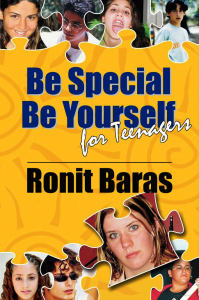|
|
October 30, 2010
This article was originally written for and posted on SafetyWeb.com. SafetyWeb is a thoughtfully designed tool that provides parents with a means and a context for ongoing family conversations about safety, friendship and how the choices we make, online and off, have consequences.
 Thanks for respecting me, Mom. If your kids are 11-17, congrats! You’ve made it to the Major League of parenting. With little ones, you didn’t need fancy plays since you called all the shots. Now there’s often grumbling in the bullpen and effective parenting is all about nuance and negotiation.
As t(w)eens step up and make more of their own decisions, parents need to gradually step back. But your job’s not done yet! Kids still need us to be plugged in and monitoring their physical, social and emotional well-being. With 3/4 of middle and high school students actively engaged in social media, they need us more than ever.
But when does conscientious monitoring of young digital citizens cross the line and become disrespectful and intrusive? Good question! Hold that thought.
Just for the record, if you’ve got evidence or a vague sense that your child is engaging in harmful activities or is being hurt, threatened or harassed, monitor the situation very closely. Act on your gut. Question your kid at length. Tell what you know, suspect and fear. Dig deep and don’t give up until you get to the bottom of what’s going on. Then offer your strongest support, providing your child the help (s)he needs and follow up!
But what if nothing’s going on? How closely should you monitor then? I often hear from good, drug-free kids, who get excellent grades. They’re indignant because Mom/Dad snoop through their email and cell phones for no known reason. They’re exhausted by a so-called Velcro parent who can’t let go and constantly texts and phones their kids all the day.
In case you’re thinking: “I have the right to check in with my kid whenever I want and to know everything my kid’s doing at all times!” With all due respect, if you don’t have probable cause for poking into the personal exchanges your kids have with their peers, you shouldn’t. All kids, especially teens, have the right to a degree of privacy.
How much privacy? How much freedom? At what age? Depends. I don’t know your child or his track record for making responsible choices when you’re not around. Besides, parenting isn’t a science, it’s an art. We’re all artists, trying to figure out how to use our tools to launch a masterpiece, i.e., a fully functioning young adult. Unfortunately, there are no easy answers. But the most effective parents create and maintain healthy boundaries with their kids.
In 21st Century parent-speak the word “boundaries” often means “rules.” As in: Parents set up the rules and the kids (hopefully) comply. This top-down, one-way approach can lead to rebellion in the ranks. Family rules are part of any discussion of boundaries, but the fact is, healthy boundaries are a two-way street. Our personal boundaries deserve respect and so do our kids’. For example:
You politely inform your 13 year old she can’t go out with her friends because she didn’t keep her agreement to finish her homework first. Furious, she blasts you with a choice sampling from her name-calling inventory. Boundary alert! Your daughter disrespected you. She deserves a consequence from you so she doesn’t think for one minute that her behavior was acceptable.
Your 14 year old mumbles something about Coach being a “jerk” for not letting the boy start in tomorrow’s game. Incensed, you grab your phone. Your son shouts, “Don’t! I’ll handle it!” Ignoring him, you call Coach and give the “jerk” an earful. Double Boundary alert! By disregarding your son’s wishes, you disrespected him. You also rudely overstepped your parenting role by intervening between coach and student.
We all want our kids’ respect. That’s why we’ve got to hold them accountable for respecting our boundaries. While we’re at it, we need to respect their boundaries too. Great advice, though not always easy to follow. But like I said, parenting is an art… you’ve got to practice to improve. Besides, we’re not looking for perfection, just progress.

October 17, 2010
 "Be Special, Be Yourself for Teenagers" by Ronit Baras According to humanistic psychology founder Abraham Maslow we’re all driven by needs. In Maslow’s Hierarchy of Needs, the most basic ones are our physiological needs (air, food, water, sleep, sex, etc.). No surprises there. If you’re consistently not getting what you need in this category, nothing else matters.
After our survival needs are taken care of, then come our need for Safety, Love/Belonging, Esteem, and finally Self-Actualization. It’s all pretty interesting stuff and can be very helpful when you think about human behavior. Most behavior is driven by a need. The most outrageous, over-the-top and often inexplicable behavior is driven by intensely felt emotions tied to these needs. When a kid or a teen acts out, instead of solely addressing what the child is doing, effective parents take a short cut and directly explore the need behind the behavior.
It all sounds like a solid system. Just get your needs met and be happy. Simple. Except what happens when one need is in conflict with another? For example the need for acceptance (which is huge for t(w)eens) vs. the need to be unique, also a big one with middle and high school students. That kind of conflict could spell trouble and often does.
My guest today, Ronit Baras, who has studied and written about these conflicting needs and how they affect the life choices of adults and teens. Ronit is the co-creator of the “Be Happy in LIFE” life coaching program and the author of the two self help books, “Be Special, Be Yourself for Teenagers“ and “In the Outback with Jasmine Banks“.
Ronit is an experienced educator as well as an international speaker. Among her clients are private institutes, schools, universities, public organizations, government bodies, educational associations, financial corporations.
For her community work, Ronit Baras has been nominated twice for “Australian of the Year.”
Listen to our conversation right here:
[QUICKTIME http://www.anniefox.com/podcast/FC021.m4a 300 300 false true]
If you have iTunes, you can subscribe to this podcast in the iTunes Store.
Or, you can download an MP3 version here.
Upcoming guests include:
Katherine Ellison, author of the memoir, Buzz: A Year of Paying Attention
Sean Buvala, author of DaddyTeller: How to be a Hero to Your Kids and Teach Them What’s Really Important By Telling Them One Simple Story at a Time
Dr. Karyn Purvis, co-author (with Dr. David Cross, Wendy Lyons Sunshine) of The Connected Child: Bring hope and healing to your adoptive family
Judith Warner, author of Perfect Madness: Motherhood in the Age of Anxiety and We’ve Got Issues: Children and Parents in the Age of Medication
Rachel Simon, author of Riding The Bus With My Sister and The House on Teacher’s Lane

October 14, 2010
 Who do you think you are? Great gobs of vitural ink have been sloshed around describing America’s “decline.” In a recent Newsweek story about the 100 best countries we didn’t even make the top 10. We’re Number 11. But, it’s not like Newsweek dropped a bombshell. We’ve all noticed the slippage for a while. From family problems to school problems to dysfunctional legislators to holy book burners.
Oh yes, my friends, we’ve got Trouble with a Capital T that rhymes with D and that spells DECLINE. All the pity party laments boil down to just one thing: “America’s lost its competitive edge.”
Oh yeah? Not so fast, dude. Sure, we may be losing the competition for top world ranking in stuff like education, health, quality of life, economics, and political environment. But what about Top Dog status in stuff that really matters? For example, when it comes to vying for popularity within their peer group no kids on Earth come close to the clawing, biting, sheer grit of American teens.
In light of recent horrific in-your-face school bullying plus the cyber predator stealth assaults launched from smart phones and PCs, I think I’ve figured out what’s driving at least part of it. It’s competition. And we’re scary good at it.
I’m sure we’d all agree that we hate bullying behavior. And it goes without saying we hate bullies. Every last one of them. But for the record, there is no them. It’s all us. From time to time, to one degree or another, consciously or un, we all dismiss other people as unworthy of respect. Folks, that’s the core of bullying. And we behave that way when we’re competing with each other.
Think about it. If you’re hotter (or cooler) than me or I’m hotter or cooler than you, we may distrust each other. We may try to bring each other down in thought, word or deed. If you’re smarter than me or way stupider, you’re on my hit list. If you’re fatter than me or thinner, if you wear more or less expensive clothes, if you’re a super jock or a super geek… watch out! ‘Cause whatever we are that’s “different” may be seen as a threat to someone else’s never-ending quest for votes, money, power, friends… love. And we all know what happens when we feel threatened. We attack. Sounds ruthless, but we’ve gotta get real. We’re on the edge here. Each one of us adults and kids, we’re socialized and primed to compete with each other and often that means giving each other a hard time.
So, you still in this competition or are you ready to opt out?
UPDATE: 2/2/12: Just got this great bullying awareness and prevention info-graphic from @MAT@USC aka, Master of Arts in Teaching… because it is an art!

October 2, 2010
Yesterday my friend Rachel wrote to find out if I’d blogged yet about the cyberbullying incident that ended in a Rutgers University freshman killing himself. I told her the news had really depressed me but that I didn’t have any insights that couldn’t be found elsewhere. I mean what do you say when (yet another) teen is so victimized by bullies he/she can’t figure out what the hell to do to make things OK again and gives up everything just to end the suffering? I’ve got nothing to say. I’m sitting here crying. The casualness with which these acts of torment are perpetrated absolutely stuns me. But what else is new?
So, no. I wasn’t going to write anything.
Then I watch Ellen Degeneres on video talking about this senseless act of cruelty. Looking straight at the camera and with obvious emotion Ellen said, “It’s hard enough being a teen and figuring out who you are without people attacking you.” To the adults watching she said, “There are messages everywhere that validate this kind of bullying and taunting and we have to make it stop.” And to the kids watching, she offered this, “…things will get easier. People’s minds will change and you should be alive to see it.”
Still I was not going to blog about what happened to Tyler Clementi and what he did as a result. Even though his death was the fourth in a string of Welcome Back-to-School homophobic attacks on teens that ended in suicide. It all sucks, but what more is there to say?
Then I listened to Justin Patchin of the Cyberbullying Research Center, a clearinghouse of information dedicated to providing information about “…the nature, extent, causes and consequences of cyberbullying amongst adolescents.” Patchin told NPR’s Melissa Block that when he speaks to teens who use their phones and computers to commit these acts of intentional cruelty they “genuinely do not realize that harm could come from it.” He went on to say that these kids “don’t see it as something wrong.” Rather, they think of what they’re doing as “fun or funny” and “not that big of a deal.”
That’s when I knew I needed to write. The tormentors don’t see it as something wrong?! For real?!! If that’s the case then we’re looking at a whole lot of broken kids. Broken in a way that prevents them from thinking beyond the itch of “Hey I got a great idea!” So broken they blithely launch a personally addressed cluster bomb packed with malice and truly believe it’s “not a big deal.”
With kids like that as our only hope for the future we ‘d be in deep doodoo.
Fortunately, these aren’t the only kids out there. There are plenty of kids and adults who aren’t buying into the notion that any of this is fun or funny. They’re deadly serious about fighting back, supporting each other and changing the Culture of Cruelty for any kid, tween or teen who’s catching flak for being different. GLBT teens, check out Dan Savage’s new “It Gets Better” project.
Oh, and by the way, October is National Bullying Prevention Month… Don’t just sit there, be part of the solution.
UPDATE: 6:49 PM Talk about cyber-bullying, just came back from The Social Network, a cautionary tale from the Real Friends vs. The Other Kind files. Totally worth seeing.
UPDATE: March 16, 2012 Today, a New Jersey jury found Dharun Ravi, Tyler Clementi’s former roommate guilty of bias intimidation among other charges.
UPDATE: May 21, 2012 Superior Court Judge Glen Berman handed down Dharun Ravi’s sentence: 30 days in jail and 3 years probation after having been found guilty of numerous crimes, including invasion of privacy and bias intimidation (a hate crime) http://video.msnbc.msn.com/nightly-news/47511677/#47511677

| |














